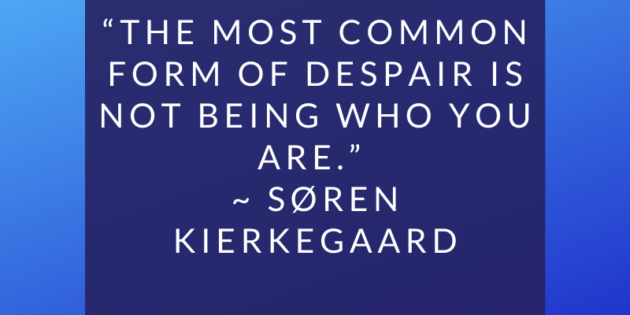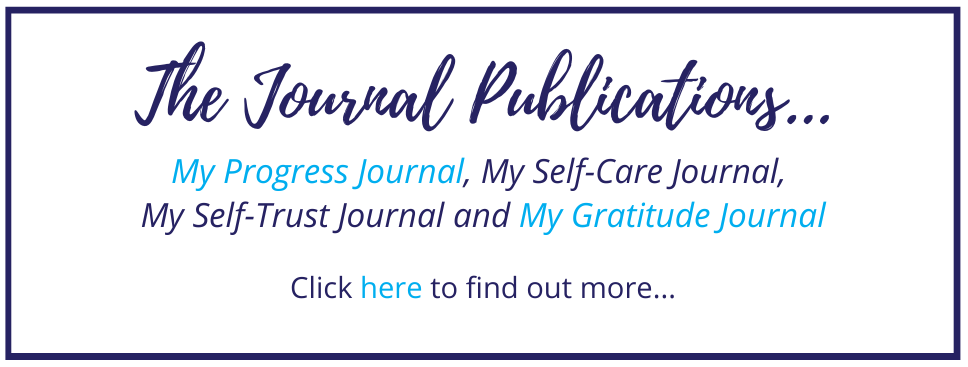You know that moment, when you see clearly? As if something within you has shone so deeply that there is no more hiding? For me, I had one of those experiences yesterday when I was having a conversation with a friend. After the conversation, the following quote came across my path and again it resonated so deeply with me.
“The most common form of despair is not being who you are.” ~
Subsequently, today I wanted to share with you some of my thoughts on self-betrayal, including 3 ways we can betray ourselves. Let’s get started…
What is Self-Betrayal?
So we are on the same page about self-betrayal, here is the definition I found when researching self-betrayal –
- “the intentional or inadvertent revelation of the truth about one’s actions or thoughts” ~ Google and Encyclopedia.com
And these are the couple I found on betrayal –
- “to be unfaithful in guarding, maintaining, or fulfilling” ~ Dictionary.com
- “the action of betraying one’s country, a group, or a person; treachery.” ~ Google
As I was writing those definitions, I thought self-betrayal also linked to self-deception.
What is Self-Deception?
A number of definitions on self-deception exist, including –
- “the action or practice of allowing oneself to believe that a false or unvalidated feeling, idea, or situation is true.” ~ Google
- “Self-deception involves allowing yourself to believe something about yourself that is not true, because the truth is more unpleasant.” ~ Collins Dictionary
- “the act of hiding the truth from yourself” ~ Cambridge Dictionary
- “the act or fact of deceiving oneself.” ~ Dictionary.com
Do you agree there are some links between self-betrayal and self-deception?
3 Ways We Can Betray Ourselves
Over the years, I have discovered many ways I have betrayed my self, including –
- Saying ‘yes’ to something, when I would have preferred to say ‘no’,
- Getting a good idea, however not following through on it, and
- Being super judgemental on ourselves.
1. Saying ‘Yes’
Have you ever said ‘yes’ to something, when you would have preferred to say ‘no’. Don’t worry, you are not alone. Yes, I know saying ‘no’ can be changing, however what I have realised is that I needed to learn to say ‘no’ to some opportunities as they were taking away from the time and energy I could invest following my own dreams. As Paulo Coelho so eloquently said,
“When you say ‘Yes’ to others, make sure you are not saying ‘No’ to yourself!”
2. Getting a Good Idea
Ever had a good idea or a dream and not follow through on it? Yep – I have been there as well 🙂 However, I have learnt to honour those ideas and now have a process in place to honour them. This process helps me to decide if I want to follow through on them or not. Oprah said it this way –
“There is nothing worse than betraying yourself.”
3. Being Super Judgmental
Now if you have been around here for a while, you might know I spent many years untangling my own judgement. This became very draining for me personally and I needed to learn another way. Fortunately, I did and continue to practise being kind to myself.
“You’re always with yourself, so you might as well enjoy the company.”
There are also other ways we can betray ourselves, including –
- Purchasing items that you know you cannot afford,
- Looking for people to ‘complete you’,
- Comparing ourselves to other people,
- Being friends with people who hurt you, and
- Not being present in the moment.
Why Does Self-Betrayal Matter?
For me, self-betrayal matters because you matter. Yes, truly! Your feelings, your dreams, your health, your voice. your relationships. they all matter as they are part of you 🙂
Over to You…
I hope this has given you some insight in to the ways we can betray ourselves. Remember – life is an adventure and we are here to grown and evolve. So be kind to yourself 🙂
If you are ready to reclaim your courage and take the next step towards freedom and opening your heart, why not join our Toolkit?

















Leave A Response